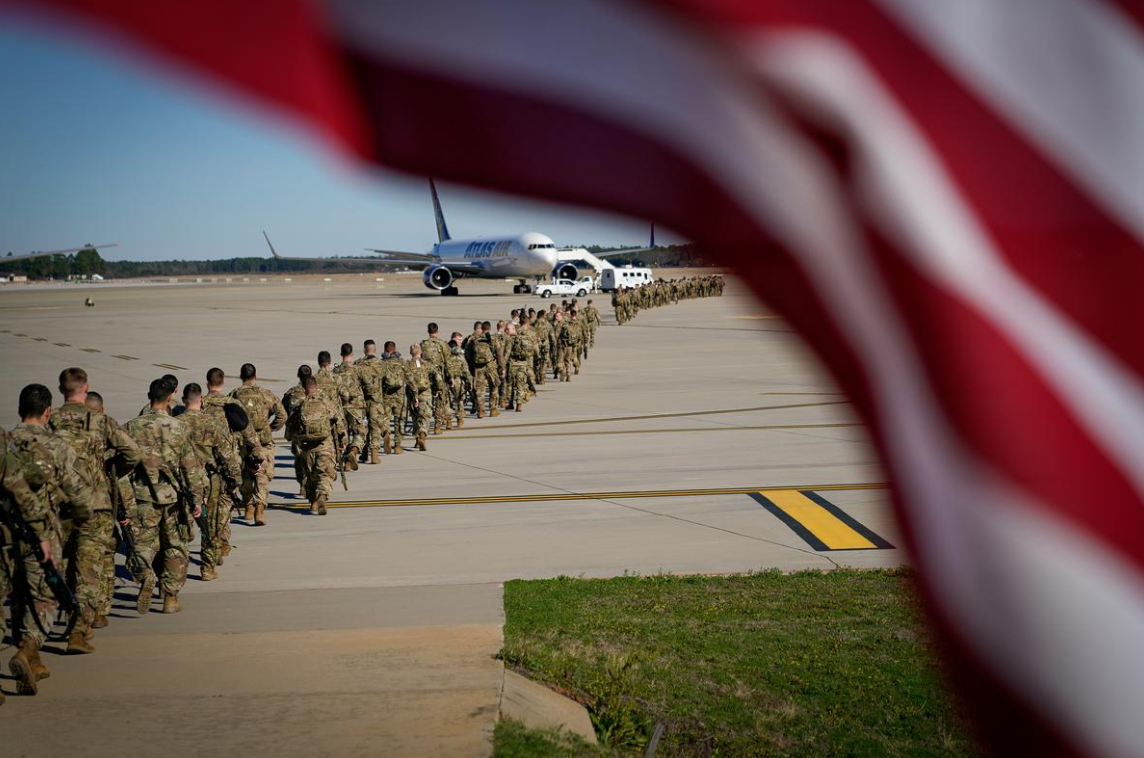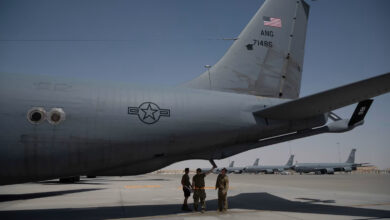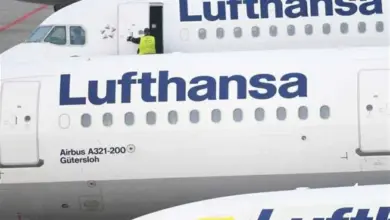
The Middle East remains a dilemma for American foreign policy. Ever since Washington began to pay attention to the region, to inherit British influence and forge alliances, it has faced a dilemma related to the difficulty of having a fixed pattern to manage its relations with both its allies and opponents. Each ally of Washington has its own distinguishing political feature that may differ from that of other allies, and each of its opponents has an issue that may differ from that of other opponents.
This situation, which includes multiple determinants of the relationship between Washington and countries of the Middle East, is different from the nature of the relationship between the United States and Europe. US-European relations are consistent, organized and institutional, and the aspects of their relations are discussed through established institutions, such as NATO or EU institutions. The European ally is also both politically and administratively mature.
Therefore, American-European interactions are predominantly clear and accurate: Washington works to provide a security umbrella against Russian and Chinese threats. In return, Europe provides a consumer market for American goods. Thus, the logic of American-European relations differs from the logic of the relations that Washington has with its Middle Eastern allies, as it is still unclear what American foreign policy wants from the Middle East.
However, it can be said that the United States’ view of the Middle East region is marked by key determinants, the most important of which are: First, ensuring the security of Israel. Second, ensuring the smooth flow of oil and goods through vital straits, such as the Persian Gulf and the Suez Canal. Third, fulfilling the security requirements of its allies. And fourth, to try to “democratize the region” within a comprehensive strategy to counter terrorism and extremism.
Looking the current scene, it is noticeable that Israel’s classification has changed in many Arab countries, from a traditional enemy to a potential ally against the Iranian threat. The risk of some official institutions adopting extremist discourse has also decreased, and some closed countries adopted a kind of social and cultural openness within a vision aimed at preventing extremist ideas from infiltrating the younger generation.
And what is more significant is the transformation of the United States into an energy producer with the advent of the shale oil industry. All of the above confirms that the determinants of the American relationship with other countries since World War II have changed gradually since the early 2010s.
Moreover, the United States is no longer eager to impose a political rhythm in the region. When the administration of former US President Barack Obama signed the nuclear deal with Iran without coordinating with its allies in the region, it caused wide controversy regarding the extent of Washington’s commitment to specific rules in the Middle East.
This “political crudeness” has diminished the United States’ ability to shape events in the region. This comes in conjunction with the growing Russian military presence in the Middle East for the first time, and the emergence of Russia as a trustworthy and reliable ally based on its unlimited support for the Syrian state.
In the past, Washington used to determine the roles of its Middle Eastern allies. For example, Operation “Desert Storm,” which was led by the US Air Force with wide international participation, played a key role in forcing the Iraqi army to withdraw from Kuwait. But after the Iranian nuclear deal, some Arab countries no longer saw it necessary to act within the framework of Washington.
For example, the operations of the “Arab coalition” in Yemen that started in March 2015 did not involve Washington operationally, and were not coordinated and managed through the United States Central Command (USCENTCOM), which is responsible for US military activities between Europe and Africa. Rather, American involvement was limited to providing military advisers, logistics and deployment of advanced Patriot systems as the battles evolved to dangerous levels.
As for toppling the Syrian regime, this goal has been retracted since the start of the operations of the international coalition against ISIS, as Washington is no longer willing to risk replacing a central dominant government with a fragile government that is unable to control terrorism.
As for Ankara, it is in a chronic dispute with Washington relating to the Kurdish issue, due to the inconsistency of Ankara and Washington’s view of the Syrian Democratic Forces. While the United States sees the forces as an ally in the fight against terrorism and a part of the Syrian scene in the future, Ankara classifies it as terrorist organization, and even places it at the top of its list of terrorists.
This does not mean that the United States has become weak, or that its international leadership has declined, as some like to promote. The region, with all its contradictions and variety of actors, makes it very difficult for a single power to be able to control the course of events.
Therefore, surprises prevail over the political character of the Middle East, as there is no power that can influence the dynamics of interactions in the region like the United States can. Even if it reduces its presence and withdraws from the region, no one will be able to play the American role in a similar manner.
It can be said that the United States is weary of bearing the high cost of an exhausting influence in the region. Because even though it is “able” to manage the region, it is no longer “interested” in this endless task, especially in light of the rise of other priorities with the “America First” policy, and the rise of the Far East as a significant geostrategic region in American perceptions, which comes at the expense of the Middle East. The “Asia-oriented Policy,” adopted in 2012, came as a recognition that the Asia-Pacific region has become the main driver of international politics.
Moreover, the coronavirus crisis has cast its shadow over US national security priorities, turning America’s strongest efforts toward finding ways to contain the outbreak, and the interest in foreign policy has greatly declined. Given that the consequences of the “corona crisis” will inevitably lead to a “post-corona crisis,” which some experts believe will be even longer and more complicated, the United States will devote its efforts toward internal affairs.
American diplomacy will try to deal with international relations in the “post-corona” stage with a kind of toughness, and will practice a kind of reassessment of the issues it is involved in. The deep state in the United States may even reach a firm conviction of the necessity of dominating the Far East, where the United States, China and some emerging economic tigers are competing.
Here, questions arise about the future of American influence in the region. Perhaps the most important of which is: Does the United States really want to maintain the “Status Quo” regarding its influence in the Middle East? And with the drop in oil prices and the transformation of the United States into an energy producer because of the shale oil industry, how can US national security priorities related to the Middle East change?
The worrying constant in American policy toward the Middle East remains that when things are at stake, the United States sometimes misleads its allies, or does not support them as expected. For example, the United States intervention in Iraq in 2003 was followed by the penetration of Iranian influence into the “new Iraq,” and an increase in Iran’s presence in the region, even though there were Gulf states that had borne part of financing the war and logistically contributed to its operations.
This demonstrates that Washington does not have the desire and/or the ability to draw the nature of interactions in the Middle East. In a region whose political systems have not matured yet, foreign policy decisions in many of these countries usually reflect personal orientations rather than an institutional vision.
Therefore, conflicts persist and a consensual solution cannot be reached, because the relevant authorities maintain their points of view. If decision-making systems in the countries of the region followed objective criteria, then the foundations of constructive dialogue would be built to solve emerging disputes, just as is the case in Washington’s relationship with the European Union, or in inter-European relations.
Therefore, the United States continues to play on incomplete balances, favoring one and controlling another, thereby perpetuating the chronic tension (conflict management rather than conflict resolution) that allows it to exploit chaos in its favor, as instability is an almost inevitable reality. And the implementers United States policy are well aware that the most realistic definition of politics is that it is “the art of the possible.”
Therefore, it seems that maintaining the existence of a “scarecrow” is a vital necessity in order to maintain American influence in the region, which requires a kind of “uncertainty” that some people see as American failure. However, American policy is not hesitant, it is carefully considered to maintain a margin of free movement for the American decision in the region. What appears as hesitation might be a means of pressure to extract more gains and concessions from ally countries.
There is substantial evidence of American hesitation toward events in the Middle East, including President Donald Trump’s repeated announcement that the Unites States would withdraw its forces from eastern Syria, before a senior official in his administration corrected the situation and announced a few days later that there would be no final withdrawal, but rather a repositioning and a reduction of the number of American troops there.
The American administration is now practicing the same subtle ambiguity regarding the future of its military bases in Iraq. Despite American statements about an expected military withdrawal, it is unlikely that the United States Intelligence Community will risk leaving Iraq in light of the current situation both in Iraq and in the region as a whole.
Regardless of international and regional balances, it can be said that the Middle East was not subject to American control, as many variables stood against the American agenda. Moreover, the region’s crises were not resolved. Rather, they were managed, prolonged, and left pending without a final conclusion. And it appears that the “shock doctrine” is Washington’s only way to preserve what it achieved in the region — if it is serious about it — by taking exceptional measures and imposing them under the pretext of facing renewed unforeseen circumstances.
As for those who presume that there is a driver for events in the Middle East, they should read evidence from history and study the region’s ideological contradictions. However, that does not mean that Washington is unable to secure its interests, as it always reminds all regional and international parties that it has the upper hand, and that it has tools to control the balance. The targeted killing of Qasem Soleimani, the commander of Iran’s Quds Force, happened not long ago.
Likewise, the killing of Russians affiliated with Wagner Group — estimated in dozens by the New York Times, while Russia only admitted five — in Deir al-Zour in February 2018 also happened not that long ago. This occurred when the US military used appropriate force with an armed group that approached American interests, represented by oil fields and an allied Kurdish force.
In conclusion, the Middle East will remain the preferred arena for settling disputes between major powers, and the most dangerous field of international interactions. It is thus a “barometer” of international influence, although countries of the Middle East contribute a limited influence in shaping organized international policy.
This necessarily leads to the emergence of a regional trans-dispute alliance or understanding, to coordinate a semi-unified vision that will take into account the priorities of the region. Instead of assessing the ability of this or that country to lead the helm of the region, it is better to create a “regional sovereignty” that meets the needs of the people of the region and communicates with the major powers within a framework of mutual respect.
This is not a mere hollow theorization, but is rather a vision that requires the will to overcome all the difficulties that prevent the development of a coherent regional position.
In light of the coronavirus crisis and the changes that will follow in international relations, there is no power willing to bear the high cost of controlling the course of the region’s complex events. Even Washington is weary of the unstable region, and seeks to gradually withdraw from it without creating a vacuum that its rivals, Russia and China, can exploit.
___
Image: US Army paratroopers assigned to the 1st Brigade Combat Team, 82nd Airborne Division, walk toward an awaiting aircraft prior to departing for the Middle East from Fort Bragg, North Carolina, US January 5, 2020. (REUTERS/Bryan Woolston/File Photo)




